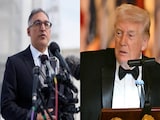Representative Pic
New Delhi:
India's main drug regulator has not been properly scrutinising some drugs before approving them, and some of its officials are colluding with drug firms and medical experts to circumvent procedure, according to a new parliamentary report.
The report by parliament's health committee, the result of a more than year-long investigation, painted a chaotic picture of the Central Drugs Standard Control Organisation (CDSCO), which oversees the licensing, marketing and trials of drugs in India.
"There is sufficient evidence on record to conclude that there is collusive nexus between drug manufacturers, some functionaries of CDSCO and some medical experts," it said.
It recommended that the government re-examine certain drugs that had been approved, investigate the "gross violation" of Indian laws it had uncovered, and take action against officials alleged to have colluded with the drug companies.
"What we have found is very alarming," Brajesh Pathak, chairman of the Standing Committee on Health and Family Welfare told Reuters. "The health ministry should investigate the matter and take urgent action on the report."
There was no immediate official comment from the CDSCO on the report, which named a number of major international pharmaceutical companies. Health Ministry officials were also not immediately available.
The report, presented in parliament on Tuesday, found numerous shortcomings in an organisation where files of several controversial drugs had mysteriously disappeared and the recommendations of medical experts promoting certain drugs were identically worded, to the point of including the same misspellings.
It said the problems besetting the CDSCO were partly institutional.
The regulatory body suffered chronic staff shortages and was overwhelmed by its responsibilities in a country where more than 10,500 drug manufacturers were operating and the pharmaceutical industry was growing at a rate of about 10 percent a year.
But the report also said the body had for decades neglected the "poor and hapless patient" in favour of the drugs industry.
The parliamentary committee also found a deeply flawed drug-testing system.
It reviewed 39 drugs approved by the CDSCO and found that in the case of 11, Phase III trials - the final stage of testing before a drug is approved - had not been conducted as required.
A review of opinions submitted by experts on various drugs also showed that an "overwhelming majority are recommendations based on personal perception without giving any hard scientific evidence or data".
"Still worse, there is adequate documentary evidence to come to the conclusion that many opinions were actually written by invisible hands of drug manufacturers and experts merely obliged by putting their signatures," the report said.
A senior CDSCO official, who declined to be named because he is not authorised to speak to the media, said the regulator does not require pharmaceutical firms to conduct safety trials again if drugs have already been approved in their home country.
"We ask for clinical trials only if there is any change in the molecule of the original drug, or the drug has not been approved in their own country," he said.
The report by parliament's health committee, the result of a more than year-long investigation, painted a chaotic picture of the Central Drugs Standard Control Organisation (CDSCO), which oversees the licensing, marketing and trials of drugs in India.
"There is sufficient evidence on record to conclude that there is collusive nexus between drug manufacturers, some functionaries of CDSCO and some medical experts," it said.
It recommended that the government re-examine certain drugs that had been approved, investigate the "gross violation" of Indian laws it had uncovered, and take action against officials alleged to have colluded with the drug companies.
"What we have found is very alarming," Brajesh Pathak, chairman of the Standing Committee on Health and Family Welfare told Reuters. "The health ministry should investigate the matter and take urgent action on the report."
There was no immediate official comment from the CDSCO on the report, which named a number of major international pharmaceutical companies. Health Ministry officials were also not immediately available.
The report, presented in parliament on Tuesday, found numerous shortcomings in an organisation where files of several controversial drugs had mysteriously disappeared and the recommendations of medical experts promoting certain drugs were identically worded, to the point of including the same misspellings.
It said the problems besetting the CDSCO were partly institutional.
The regulatory body suffered chronic staff shortages and was overwhelmed by its responsibilities in a country where more than 10,500 drug manufacturers were operating and the pharmaceutical industry was growing at a rate of about 10 percent a year.
But the report also said the body had for decades neglected the "poor and hapless patient" in favour of the drugs industry.
The parliamentary committee also found a deeply flawed drug-testing system.
It reviewed 39 drugs approved by the CDSCO and found that in the case of 11, Phase III trials - the final stage of testing before a drug is approved - had not been conducted as required.
A review of opinions submitted by experts on various drugs also showed that an "overwhelming majority are recommendations based on personal perception without giving any hard scientific evidence or data".
"Still worse, there is adequate documentary evidence to come to the conclusion that many opinions were actually written by invisible hands of drug manufacturers and experts merely obliged by putting their signatures," the report said.
A senior CDSCO official, who declined to be named because he is not authorised to speak to the media, said the regulator does not require pharmaceutical firms to conduct safety trials again if drugs have already been approved in their home country.
"We ask for clinical trials only if there is any change in the molecule of the original drug, or the drug has not been approved in their own country," he said.
© Thomson Reuters 2012















